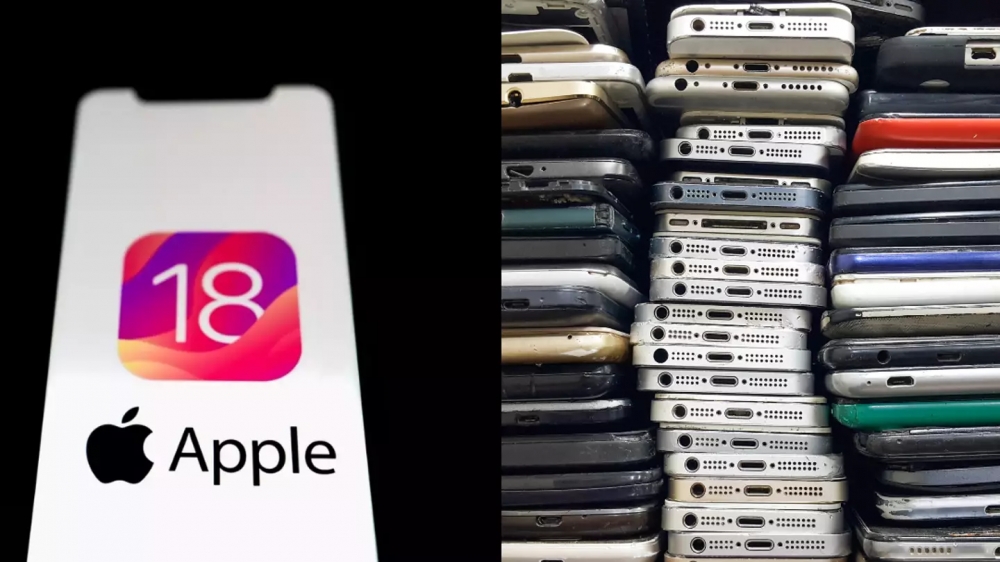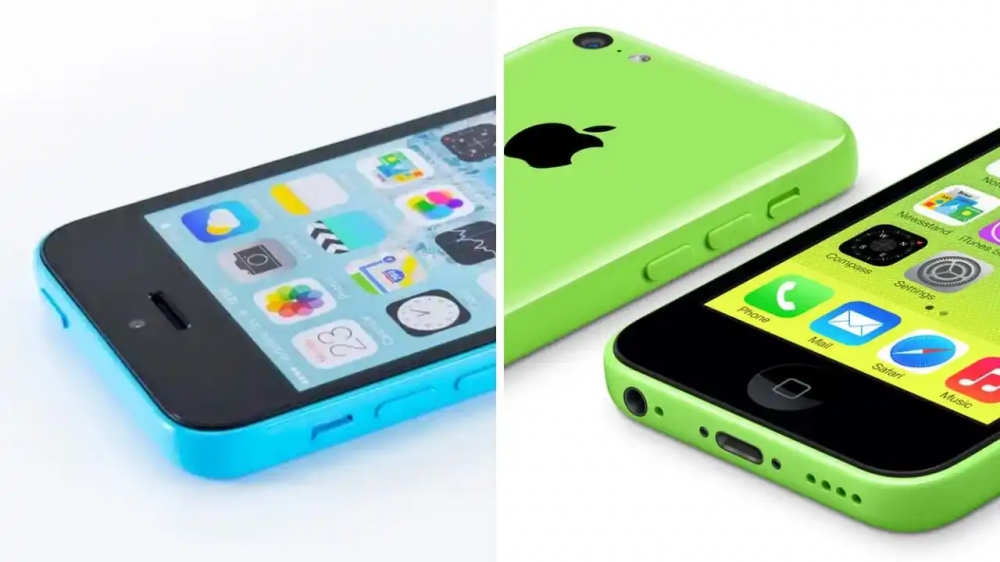What Happens When Your iPhone is No Longer Supported? All You Need to Know
- No more updates? Discover the hidden risks and how to mitigate them.
- Using an obsolete iPhone can pose a security risk — here's what you need to know.
- Think your old iPhone’s still good? Here’s what could go wrong when it’s left behind.
Apple has a reputation for supporting its iPhones far longer than most of its competitors. Typically, an iPhone will receive major iOS updates for about seven years before it's left behind. And with iOS 18 just around the corner, millions of iOS devices are expected to become obsolete in 2024 and 2025. Find out if your device is affected.
But what does it really mean when your iPhone stops getting those shiny new iOS updates each fall?
 Photo via LADbible // Millions of iPhones will become obsolete in 2024 due to iOS 18. Is your device on the list?
When your iPhone ceases to receive major iOS updates, it's a sign that Apple has drawn a line in the sand. For example, the iPhone 6s and the first-generation iPhone SE, which launched in 2015 and 2016 respectively, saw their last major update with iOS 15, marking a solid seven years of software support. This is no small feat in the fast-moving world of tech. However, as newer iPhones continue to benefit from increasingly sophisticated hardware, it’s plausible that future models may enjoy even longer lifespans.
Photo via LADbible // Millions of iPhones will become obsolete in 2024 due to iOS 18. Is your device on the list?
When your iPhone ceases to receive major iOS updates, it's a sign that Apple has drawn a line in the sand. For example, the iPhone 6s and the first-generation iPhone SE, which launched in 2015 and 2016 respectively, saw their last major update with iOS 15, marking a solid seven years of software support. This is no small feat in the fast-moving world of tech. However, as newer iPhones continue to benefit from increasingly sophisticated hardware, it’s plausible that future models may enjoy even longer lifespans.
But what happens when your device falls off the update wagon? Well, first and foremost, you miss out on all the new features that Apple rolls out each year. From simple quality-of-life improvements to significant changes in apps like Safari or Notes, being stuck on an older version of iOS can feel a bit like driving a car that’s a model or two out of date. Your iPhone will continue to work, but it might start feeling a little sluggish, and you could encounter compatibility issues with newer apps or services.
Security is where things start to get dicey. Even though Apple occasionally pushes critical security updates to older devices—such as the iPhone 5s receiving iOS 12.5.5 in 2021—these patches only address the most severe vulnerabilities. The rest of the bugs are left untouched, leaving your device increasingly exposed as time goes on. The threat of security exploits, particularly zero-day and zero-click vulnerabilities, looms larger as your device ages. These vulnerabilities are actively exploited by attackers, and without regular updates, your iPhone could become a sitting duck.
 Photo via Apple Inc. // Apple's iPhone 5C is now officially obsolete.
To extend the life of your iPhone, start by taking good care of its battery. Batteries degrade over time, which can lead to poor performance and unexpected shutdowns. You can check your battery’s health under Settings > Battery > Battery Health. If it’s below 80%, consider getting a replacement from Apple—it’s cheaper than buying a new phone and can make your iPhone feel like new again.
Photo via Apple Inc. // Apple's iPhone 5C is now officially obsolete.
To extend the life of your iPhone, start by taking good care of its battery. Batteries degrade over time, which can lead to poor performance and unexpected shutdowns. You can check your battery’s health under Settings > Battery > Battery Health. If it’s below 80%, consider getting a replacement from Apple—it’s cheaper than buying a new phone and can make your iPhone feel like new again.
Another tip is to keep your iPhone clean, both physically and digitally. Regularly clean out apps and files you no longer need, and avoid filling up your storage to the brim, as this can slow down your device. Physically, keep your iPhone in a case and use a screen protector to prevent damage. A well-maintained device is more likely to last longer.
Security-wise, even if your iPhone no longer receives updates, there are steps you can take to protect yourself. Avoid downloading apps from unfamiliar sources and be cautious about clicking on links or opening attachments in messages from unknown senders. Also, consider using a VPN when connecting to public Wi-Fi networks to add an extra layer of security.
Ultimately, there’s a case to be made for both upgrading and sticking with an older iPhone. If your device still meets your needs and you’re diligent about maintaining it, there’s no reason it can’t continue to serve you well for years to come. But if you’re finding that more and more apps aren’t compatible, or if you’re worried about missing out on important security updates, it might be time to consider a newer model. After all, staying up-to-date is not just about having the latest features—it’s about keeping your data safe in an increasingly connected world.
Recommended by the editors:
Thank you for visiting Apple Scoop! As a dedicated independent news organization, we strive to deliver the latest updates and in-depth journalism on everything Apple. Have insights or thoughts to share? Drop a comment below—our team actively engages with and responds to our community. Return to the home page.Published to Apple Scoop on 22nd August, 2024.
No password required
A confirmation request will be delivered to the email address you provide. Once confirmed, your comment will be published. It's as simple as two clicks.
Your email address will not be published publicly. Additionally, we will not send you marketing emails unless you opt-in.